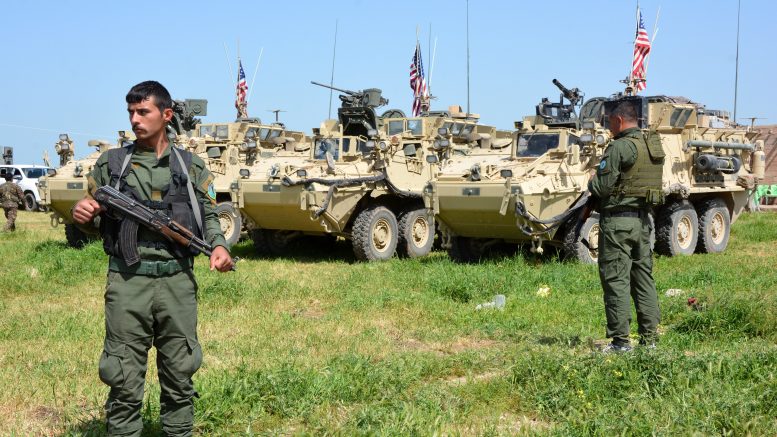The international coalition against Islamic State (ISIS) has found itself at the heart of an ethical dilemma in northern Syria after its ally, People’s Protection Units (YPG) branch of the Syrian Democratic Forces (SDF), threatened to target families of Free Syrian Army (FSA) rebels affiliated with Turkey. A senior official urged the YPG to avoid targeting families of rival rebel groups and called on its Kurdish allies to stick with the international norms.
The issue was raised when journalists asked a U.K. general at a briefing on Wednesday about YPG threats.
“Well, the Free Syrian Army are operating outside of our main area of focus. We should urge all parties to de-escalate any of these attentions, and focus on what’s critical to us now, which is the defeat of ISIS, and bringing peace and stability to northeast Syria,” said U.K. Army Maj. Gen. Felix Gedney, Deputy Commander, Strategy and Support at Combined Joint Task Force – Operation Inherent Resolve.
When asked about the coalition’s commitment to train local forces within the bounds of international norms and laws, and the YPG’s threats against civilians within the coalition-controlled territory, the general highlighted the importance of abiding by laws.
“No, of course the rules of law don’t allow the targeting of noncombatants. And as I said, we would urge everyone to ensure the protection of the civilians — of all civilians across the battlespace.”
In another question about the prospect of U.S.-supplied weapons being used against Turkey by the Kurdish militants in northern Syria, the commander stated that the coalition trains and provides weapons to SDF to make sure that “we can destroy our common enemy across the coalition, including Turkey, which is ISIS.
Turkey’s divergent views over U.S. alignment with the Syrian Kurdish alignment constitutes a source of friction between two allies. Ankara views both SDF and the YPG as terrorist groups over their ties to outlawed Kurdistan Workers’ Party (PKK), which has been fighting against the Turkish state for regional autonomy.




Comments are closed.